ALCHEMY OF WORDSBLOG |
|
Mercury does not go backwards and neither do you. There is no such thing as going backwards. Every moment is forward. Mercury may be up to its old tricks again. Illusions of mirrors, reflections of smoke, making us believe that life has a reverse gear. Backtracking, reminiscing, nostalgia, these are all just of gathering wood for today’s fire. We are always building, even if it feels like tearing down. Death is part of life. Decay is not loss. Without it, there is no new life. Just ask the soil in your garden. The cliché is true. We cannot go back and put our same feet in the same river. But we can go to the place we’ve been and put our current feet in the present water. And we can remember when we’ve performed this ritual before, while enjoying how it feels now. If, on our upward spiral of life, we encounter people, things, situations we’ve known before, we have not gone backwards. We are revisiting these things from our current perspective. Not to relive the past, as that is impossible. There is folly in wanting to go back and relive certain parts of your life. But you can reconnect with those you have known before, in new ways. And you can bring new life, new wisdom, new intention to those evolving relationships. You can meet old situations like you would old lovers, bringing all your life’s treasure to them in order to experience them in new ways. The hero sets out from the sacred mountain in search of the sacred mountain. His adventures are deep, treacherous, beautiful, and layered. When he returns, it is not to the same mountain. And he is not the same person. He has not gone backwards. He has gathered medicine, wisdom, clarity. And both he and the mountain are better for it. If the hero had never returned, thinking somehow that returning would be going backwards, then the journey would be incomplete, and he, the mountain, and his village, would be deprived of its singular beauty. The Lumineers sing, “Nobody knows where the story ends…” That’s because the story doesn’t end. And it doesn’t go backwards. It keeps going forward, building, growing. The mystic poet Walt Whitman knew this, as well, teaching us, “All goes onward and outward, nothing collapses.” Whenever any of your planets are in retrograde, literally or figuratively, know that neither they nor you are going backwards. It is a time for you to offer up the gifts you have collected from your journey. To add to the compost of your life’s soil. To bring new life to those who invite you in. And to experience it all with new eyes. There is more content on the Substack page, called Jaywalking Between Worlds, which is an ad-free, organic, free-range publication. Meaning it is 100% supported by readers like you. If you enjoyed this appetizer, consider becoming a free or paid subscriber at Substack. You can also find longer forms of this art on this website, tlqonline.com
0 Comments
Forget everything I’ve told you about the heart. Forget what all the books and the gurus and the masters have said. The heart cannot be trusted. Seriously, beware. It is reckless and selfish and has no regard whatsoever for your safety. Or your happiness. It will lead you straight into temptation. Into the fire and over cliffs. Then shrug its shoulders at the wreckage. If you don’t believe me, just think about the trouble it has caused in your own life. See? I told you. Why have we unwittingly given the heart so much power over our lives? It feels like we didn’t even have a choice. Like we came wired that way from the factory. Consider this your wake-up call. You do not have to believe everything it says. You do not have blindly follow it down questionable alleyways. You do not have buckle at the knees at its slightest provocation. And you most certainly do not have to rethink everything in your life and change your whole trajectory because it tells you to. I mean, unless that’s what you really want. But how do you even know what you really want? How do you even know what you really think? Not that thinking is any more reliable. Your head should wipe that smug look off its face, because it does not have any better track record. How many times has it thought something was a good idea that clearly was not. And then, in the wake of any bad decision, it starts thinking the only way for you to be in the world is to play everything safe. To avoid feelings at all cost. And so you end up sitting alone with nothing to do. Trying to remember why there is no joy in your life. Who designed these stupid human bodies of ours? Someone should file a products liability lawsuit against the manufacturer. Both the heart and the head would make terrible witnesses at trial, though. They’re not reliable narrators. Each one always wanting to blame the other. If neither the head nor the heart can be trusted to guide us, then what are we supposed to do? Maybe we should we hold some kind of peace summit and negotiate a treaty between them. Do you think it is possible for them to talk to each other and see if they can work out some kind of an information sharing arrangement? I think it’s worth a shot. I mean what do we have to lose? Things aren’t exactly working the way they are. Hopefully the whole is better than the sum of its parts. I mean that not as a noun, not even as a verb, but as a command. Or, more poignantly, as a simple instruction for life. As a game plan with only one play. A game plan that should be tattooed, not taped, to your wrist. Love is simple. We confuse and distract ourselves with hundreds of strategies for happiness, for success, for control, for security, for life. When the answer is simple. Albeit, counter-intuitive. In our defense, this is probably because, while this one-word-directive may seem simple, somehow it is not. The reasons why are probably fodder for at least twelve months of essays, all by themselves. But I think it is mostly because we are fearful beings. No matter what we say or how we act. Love is dangerous. No matter the bravado. No matter the hours at the gym, the tattoos, the sexy clothes, the cadre of friends, the cool job, or the hipness of our hangouts. No matter the number of times we read these words, study them in books, pay teachers to tell us, repeat them in mantras, stack the pillows, clear our minds, burn the right incense. No matter our friend counts, the notches on the bedpost or the numbers in the bank. No matter our previous revelations. Love remembers. We forget. We lose faith. We doubt. We disbelieve. We call past successes flukes and focus only on failure. We begin again our strategies for survival. Yes, survival. We decide that all else is fool-hearted frivolity. That we need to spend less time watching the stars and more time watching our backs. We fall back into fear. Because fear is easy. Fear comforts us as it tell us lies. Fear gets our back, it says. Protects our hearts, it assures. Leads us not into temptation. Not to cliffs and falls. Fear teaches us lessons in letting ourselves be too free. Lest we forget again. Lest we let our hearts hold the reins again. Lest we lose our way. Again. Love knows the truth. And the truth is not easy. The truth is not simple. Not courteous or kind. The truth is blinding in its beatitudes. Ruthless in its revelations. And above all, breathtaking in its beauty. And beauty, well, you know what that is. Love is beauty. In all its shapes and sizes. In all its gifts and grandeur. In its bliss and its barely believableness. In its understatement and its overwhelm. In its cruelty and its crystalline clarity. In its ability to break your heart and to save your life. With one swift stroke. Yes, it is true. The answer is simple. It is taking our own advice that is hard. Even as I write this, I must remind myself that it is true. Because I’m no different from you. And you’re no different from her or him. Which leads us back to the reason there is only one rule. Love is everywhere. Yes, I mean literally everywhere. As in not figuratively. As in you need only reach out and your fingers will touch it. As in take a step forward and you can’t help but bump into it. As in open your mouth and some of it will come out. As in open your heart and some of it can’t help but spill inside. And so why aren’t we all just constantly swimming around in blissful revelations of beauty and self-awareness and fulfillment? Well, because. Love is complicated. Or as I’ve said, love breaks all rules / ignores all customs / cuts through fences / slips across front lines / trespasses against us / steals what it pleases / pleases its victims / slays its critics / bleeds us to delirium / and saves our souls. No matter the cost. (from love: study 1, Waking Up at Rembrandt's) Sometimes this simple directive to love is hard to follow, sometimes it’s easy. But whatever action you take, if you do it with your heart open, that is enough. That will change the results. It will change your reaction. And it will change your experience. Of yourself. Of others. Of your whole damn life. Love takes many shapes. Love is not being foolish or naive, not shirking from who you are, not being afraid to use your voice. Love is showing up, reaching out, standing in your gifts, sharing your vision, connecting, being open. And as you probably already know, doing these things is both wonderful and terrifying. In the end, there is only love. Because in the beginning there is only love. So giving the instruction is simple. And yes, acting on it takes a little more. A little more courage. A little more faith. A little better memory. A little thicker skin. But in the end, what is required is the willingness to let love have its way with you. Or as Mr. Kravitz so artfully taught us. Let love rule. * * * This is one of 66 essays in the Gold Nautilus Award winning collection, Happiness Is an Imaginary Line in the Sand. The book is available here: https://bit.ly/40s3Gh0 Subscribe to Substack for more fun with words: https://thomaslloydqualls.substack.com/ You will never live if you are looking for the meaning of life. - Albert Camus I know what you’re doing. You’re out there turning over stones in search of some deeper meaning to your existence. And when you do, you’re going to find some things: moss, algae, bugs, discarded exoskeletons. Your toes are going to sink into the mud. And you’re going to get wet. You’re going to feel the stream’s current on your calves. And you’ll probably discover some other hidden treasures you never expected. What you will not find are any engraved explanations, no statements of empirical meaning, no one-size-fits-all answers. That’s because life is not some big game of hide and seek, where the gods have written down the correct answers under certain stones, and the only game is for you to look in the right places. Though, come to think of it, that would make a good story. Let me be clear, I do believe in living a life filled with turning over stones. And if you enjoy playing in rivers and creeks, hunting fairies, and searching for mayflies, then you should continue to do just that. There are treasures to be found everywhere. But just as the beauty beheld depends upon the eyes that seek it out, your life’s meaning lies in the joys of your own experience. Do we find meaning or does it find us? Let me say that another way. The meaning of life is not hiding out there somewhere, waiting to be found. Life has whatever meaning we attach to it. Whatever meaning we imagine for ourselves. More simply, we do not find meaning; we create it. And when we stop creating meaning, we quickly get lost. And then, though we are in search of meaning, somehow we end up looking for ourselves. And we don’t realize that now we are two steps away from the answer. And when we begin to feel better, it isn’t because we have found ourselves, or our way home, or even discovered the elusive meaning we sought. It is because we have assigned some meaning to our present experience. Randomly or not. Of our own design or someone else’s. What does it mean to mean? What does it mean for something to have meaning? How do we know when anything is meaningful? Too often, we believe it is when another person, religion, institution, television show, or cereal box tells us it does. But this adopted meaning often doesn’t ring true. Meanings are a lot like fingerprints. Consider a rose. To a photographer, the meaning of the rose is its vibrant color. To a sculptor, its texture. To the blind, its smell. To a lover, its symbol of affection. To a gardener, its reflection of success. To a bee, the sustenance it provides. These are each true and meaningful aspects of a rose. And yet, no one could ever say that any of these was the one true meaning of a rose. It is also why it cannot be said that anything is inherently meaningless. You can do this with almost anything. Take a songbird. I may see waking up to bird songs at dawn as the Universe giving me the best gift it can imagine to start my day. You may grab a pillow and wonder why in the world you’ve been cursed by the gods. When the gelato café moves in next door to your workplace, you may celebrate it as proof that you are, in fact, the chosen one of the goddess. Where your best friend may view it as yet another obstacle to a happy bikini season. What do you mean by create? Isn’t that like making it up? Are you saying we are just making up things about life so we’ll feel better? Well, yes, in a way. But more than that, I’m saying that the meaning of life is not set. It is not some fixed, static thing. Otherwise you could just look it up in the dictionary and move on. We live in an interactive universe. The meaning of anything in life is not separate from you. We all create our lives, and their meanings. Everyday. All day long. Life is not a board game and we are not game pieces. When a painter paints a picture, everyone agrees that the painter has created something. But the act of creation is not limited to art. It is spread across all aspects of our lives. Your life’s meaning is no different. You are constantly deciding what is meaningful. Consciously create. We are unconscious of most of the assignments of meaning in our lives. Often because we’ve mindlessly adopted someone else’s decisions. But we can change that. We can be mindful of the unique fingerprints of our own world of meaning. And we can do it in a way that keeps us awake. And we can do that moment by moment. I think what Camus meant was to get out of your head. Because the meaning of life is not there. It’s in your life. Live your life fully and find your own meanings in the living. * * * This is one of 66 essays in the Gold Nautilus Award winning collection, Happiness Is an Imaginary Line in the Sand. The book is available here: https://bit.ly/40s3Gh0 Subscribe to Substack for more fun with words: https://thomaslloydqualls.substack.com/ Makers Are Heroic. Let’s talk about the perceptibly impossible task of juggling life with art. The elusive balance between art on one side of the equation. And family. And money. And other jobs. And difficult kids. And countless pulls and tugs of meetings and school and bills and doctors and oil changes and shopping for health insurance and pulling weeds and cleaning the garage and shopping for clean food and paying attention to the cyclone of disastrous political shenanigans and the daily researching of a hundred different things for as many reasons. Of course, there’s also the sway of whiskey. Which sometimes brings gold but more often is just a waste of time and calories. And then there’s sex and what it is and what is could be and what it should be and when it will come again and whether you did all the things you should before during and after it. There’s also the finding time (and energy) for it. Still there are innumerable other unreasonable demands on your time and energy. And maybe I shouldn’t even mention sleep and vacations. These and other superhuman tasks we are just supposed to figure out. To make good art requires us to know and feel our emotions. To bear our souls while we also bare them. To be vulnerable enough to lay out hearts out on the table for the world to see. And then be strong enough to remain standing if they are judged too harshly. We are charged with this work and more. Like holding the light with one hand, while stitching the world together with the other. We must be shape-shifters. We must walk in multiple worlds, serve as ambassadors to each one, remember the different languages and customs here and there, and not completely crack the fuck up. If we succeed, we are gods. If not, we’re dreamers and castoffs. Fledgling humans who couldn’t make it in the world where the grown-ups live. We must simultaneously love the world, and also know when to tell it to fuck-off. So we can do our work. We must resist being thrown off kilter by the siren call of mediocrity. We must question everything and still have the confidence to follow our own voices, to be focused enough not lose them in the crowd. And you probably know, the pull of the crowd is strong. I don’t just mean wanting to fit in or be liked. I mean the ever-rushing current of the modern world. I’m not saying I have definitive answers to any of these riddles. My best advice is to do like Same Phillips says and no matter what happens, hold on to your voice. * * * This is one of 66 essays in the Gold Nautilus Award winning collection, Happiness Is an Imaginary Line in the Sand. The book is available here: https://bit.ly/40s3Gh0 Subscribe to Substack for more fun with words: https://thomaslloydqualls.substack.com/ Your life becomes the shape of the days you inhabit. -John O'Donohue To a Foodie, you are what you eat. Buddhists say you are what you think. And for Fashionistas, you are what you wear. To me, you are the stories you tell. The stories you watch, the stories you read, the stories you live.
If this is true, then if I watch too many movies, or read too many books, or if I'm too involved with pop culture, will I lose touch with reality? Put another way, will I create a false reality, one that’s not really mine? I know people who live in these fantasy worlds, where they are more involved in the lives of imaginary characters than in their own. Living other people’s lives instead of theirs. One’s real life is often the life that one does not lead. - Oscar Wilde These questions lead to another: What is reality, anyway? I remind myself of the importance of myth. I remember the vital purpose of imagination. And I resolve that the retelling of human stories is essential to our humanness. Before there were movies and books, there were stories. Usually told by elders around fires, these stories wove together the people and the land, the wind and the sun, the animals and the rain. The stories were their lives, just as the rivers were their blood. There was no separation. In modern life, most of our storytelling is done through movies and books (also television, theatre, opera, video games, and urban legends). Though any stories that people tell, however they tell them -- on video, paper, canvas, or clay -- they all tell us something, not just about the subjects they depict, but about ourselves. Where our lives begin and the stories end is perhaps not so important. Because the stories are really pieces of us. Reflections. Living metaphors. By allowing these stories to blur the edges of reality a little, we may come to see ourselves more clearly. When having a smackerel of something with a friend, don’t eat so much that you get stuck in the doorway trying to get out. -Winnie the Pooh Stories -- and the myths they represent -- are great, that is to say, until we get stuck in one. Like good books, we are meant to finish one and pick up the next. Not to read the same chapter, page, sentence over and over. One way to break out of a story is to go see something of the rest of world. A long time ago, in a galaxy far, far away, I took a months-long backpacking trip through India. I was stuck reading the same story and decided there were no books in my part of the world that could tell me anything new. So I took off in search of buried treasure in the East, to a place where ancient treasure is reported to be hidden. I put aside television, movies, and everything I thought I knew about myself and my place in the world and just went in search of a new story. It was transformational in ways I may never fully digest. I did find treasure there, though not quite the ones I set out to find. Among the stories which India told me was the one where I needed to go to India to figure out that I didn't need to go to India. And I couldn’t have known that any other way. Because familiarity blinds us to these kind of simple truths. There are billions of universes inside every one of us. We carry them in our blood, our breath, our DNA. And in those universes, every particle of every star, every atom of every moon, each drop of water, has its own history to uncover, its own path to travel, its own story to tell. Each one unique. Each one waiting to be discovered. But you have to know how to listen, and you have to know how to look. You have to put down that same book you’ve been reading, turn off the reruns, mix up some new paints. You have to pull out some fresh paper and pick up a new pen. Let me know what you find. I love a good story. * * * This is one of 66 essays in the Gold Nautilus Award winning collection, Happiness Is an Imaginary Line in the Sand. The book is available here: https://bit.ly/40s3Gh0 Subscribe to Substack for more fun with words: https://thomaslloydqualls.substack.com/ We are allowed to grieve, even for things not right for us. The wrong career path, the faithless lover, the secure job that doesn’t feed us, the accidentally deleted chapter, the abusive parent, the lottery ticket that blew away. We are allowed to grieve our youthful recklessness, our wavering self-confidence, our blissful ignorance, our will to live. In other words, we are allowed to be human. A while back I turned down the job offer of a lifetime. A position in that would provide two paychecks a month, health benefits, and retirement, for something I’m already skilled and experienced in doing. Why would any reasonable, rational person do this? The answer is that no person in that frame of mind would. But that doesn’t mean I didn’t have good reasons. Not the least of which is: I need to write. It is that simple. Follow your bliss and the universe will open doors for you where there were only walls. So said Joseph Campbell. How many of us truly believe in this? How many act upon that belief? Do I believe? On good days. Do I act on that belief? Well, in that case I did. In truth, I have been for years. Every time I put words to paper. So far though, most of those doors I’ve had to kick down or pry open. I’m not whining. Ok, I’m whining a little. I understand that most writers work in the dark, with mostly self-manufactured hope. Which is known to wane from time to time. Unless you are one of those blissfully self-confident types. Which probably means you’re not a writer. So forget that last part. As a writer, I believe in a few irrational things. One is that I can make a decent living as an artist. Despite society’s reluctance to do things like fund the arts or pay for books and music, I believe we still live in a world where the gift of art is essential to our lives. Also, I still I grieve. For the opportunity I passed up, for the simplicity and stability it would have offered. And I also know myself well enough to understand that I am simply unable to cut the rope on all my head-banging-against-walls aspirations. On the writer’s shack in my backyard. On becoming living proof of the ability to live our dreams. We cannot see into the future to determine what will be, what would have been. We cannot see into past lives to recapture what we learned there. Even looking backwards into this life, we are unable see clearly. Our vision is clouded by the lens of perception. Blake said, If the doors of perception were cleansed everything would appear to man as it is, Infinite. But absent the aid of mescaline or DMT, this is a difficult state to achieve. What are we to do then, those of us so unavoidably fixed in our artistic inclinations? I see plenty of ridiculously talented artists around. Those who work the scene constantly, are connected and knowledgeable, and still must bartend or pull espresso in order to pay their rents. There must be a way to rebuild our communities, our society, our nation-state, our world, so the bankers and defense contractors have to bus tables on the side. And the artists of the world, who enrich our lives so much more, could just focus on their art. True, it isn’t just about money. Money, though, is an undeniable fact of life. Money is energy, a spirit made flesh. Like air or food, we rely upon it for our existence. If we had a thought to completely eschew money, we wouldn’t have incarnated here. We’d have stayed in the unbroken realm of light. Because we are here, we agreed at some point to take on this messy state of being. We agreed to ride the ever-shifting balance between the mud and the rays of light. Wearing this skin means we not only experience joy and happiness, but doubt, grief, and sorrow. One of the tricks to being human is to master the alchemy of turning these states of being into beauty. If we want our lives to be filled with beauty, we must be brave enough to create it, generous enough to pay for it, compassionate enough to support it, and bold enough to see our vision through to fruition. When you want something, all the universe conspires in helping you to achieve it. –Paulo Coelho Despite my occasional frustration, I still believe. And I still grieve. And this is the clay from which art is made. _______________________
************
This is an excerpt from the Nautilus Award-winning book Happiness Is An Imaginary Line in the Sand. If you’d like to own the whole collection, it is available here. Focus on What You Love. I’ve said it before and I’m sure I’ll say it again: Your job is to find beauty.
Yes, your life is messy. Yes, your job is stressful. Yes, your romantic partnership is hanging by a thread. Yes, traffic sucks. Yes, your children won’t listen. Or stop talking back. Or stop crying. Or stop leaving Legos and bouncy balls in the middle of the kitchen floor where you’ll step on them in the dark and damn near kill yourself. Or them. Yes, the laundry is overflowing. Yes, you forgot to water your plants. Again. Yes, you blew the deadline. Yes, it will be another year before you can apply again. Yes, the thing you wanted more than anything in the whole universe didn’t happen. Or at least it didn’t happen to you. Yes, on top of your personal crazy world of red lights, tax forms, relationship disasters, and impossible financial obligations, all over the world people are doing terrible things to other people. And to animals. And to the planet. Which, as it turns out, is the same thing as doing those things to people and animals. But believe it or not, there is something you can do about it: Buy art. If you don’t believe me, just listen to Picasso, he knows: Art washes away from the soul the dust of everyday life. - Picasso Sure, you say. I’ll just forget about all the world’s troubles, and my own, stick my head in the sand mandala, and hide. Well, okay. That’s better than a hundred other things you could do. But I don’t see it as just hiding. I see it as one of the more powerful things you can do to change the world. What the hell am I talking about? I’ll tell you what. Actually, I’ll let Anaïs Nin tell you, because she said it quite nicely: We don’t see things as they are, we see them as we are. What I mean, in case you’re still scratching your head, is that your life is the sum total of all the things you focus on in a day. Which is why I keep saying your job is to find beauty. Which means your job is also to buy that piece of art that embodies the beauty you seek. Unless, of course, you want the terrorists to win. Then just sit at home and look at your blank walls, worrying about that missed deadline and your lover who won’t call. Still not convinced? Here’s a few more reasons: It’s empowering. You see something you like. Something that makes you smile. Something that lights up something somewhere near your chest area, your brain area, or maybe even your loins. You have either some money in the bank, your pockets, or on a credit card. You make an executive decision to use that money to buy that thing that makes you smile. And BAM, you own it. Just like that. You get to take it home and put it up any damn place you like. Artists could use the cash. Seriously. Artists live by the mantra of not just finding beauty but creating it. And they generally make less money than school teachers. Sometimes a lot less. If you want the world to be better, it starts with finding beauty, and it flows from there to helping its creator pay the rent. Support what you love. There are many things to be upset about, many things to rail against, to protest, and to fight. And many of those fights are noble. And it is a far more powerful act to find out what you love and support it. That is the best way I know to make the world a better place. It’s an affirmation of abundance. When you buy art, you’re telling the universe a thing or two. Including that you are confident of your place in it, and that you are worthy of its beauty. You are casting a vote for what’s important. And you are doing something to counter the message of the mass-produced goods culture that surrounds you. It has a story. I don’t know about you, but I want the things I have to have a story. Not to be cold, machine-produced duplicates. To have a life of their own. We all have stories to tell. Countless stories, in truth. And that’s exactly what art does. No matter what kind of art it is. It tells stories. What comes around goes around. When you start focusing on beauty. When you invest in it, feed it, and nurture it. Then something magical starts to happen. It brings its friends. And more and more beauty just starts showing up at your door, in your car, on a walk, or at work. Maybe even in bed. So go ahead. Buy some art. You’ll be happy. And the world will be happier, too. **** This is one of 66 essays in the Gold Nautilus Award winning collection, Happiness Is an Imaginary Line in the Sand. The book is available here: https://bit.ly/40s3Gh0 Your Happiness Depends Upon How You Are Looking. Just stop it, already. You know what I’m talking about. You, telling that same old story about how impossible things are, how unfair. The story of how the whole world is rigged, and not in your favor. The story of inequality, injustice, oppression, corruption, lies. The story of why it is understandable that you are where you are. I’ve said it before, this world is imperfect. In fact, in many ways, it’s down right broken. But that doesn’t mean it’s not also beautiful. Your job is not to fix all the problems. Your job is not even to point them out or to explain them. Your job is to find beauty. Because it is out there. And it is in here. It is everywhere you look. And it is everywhere you don’t look. When our eyes are graced with wonder, the world reveals its wonders to us. There are people who see only dullness in the world and that is because their eyes have already been dulled. So much depends on how we look at things. The quality of our looking determines what we come to see. -John O’Donohue Practice what you preach. Better yet, stop preaching. And just be. No one wants to listen to preaching anyway. At least not for very long. And not over and over again. Even if they agree with you. If you find you are well suited to repairing a small piece of the world that is broken, then by all means, go ahead. We need your services. We need fixers and healers of all shapes and sizes and colors. But just in case I wasn’t clear, I’ll say it again. Your job is to find beauty. Your job is to seek it out, acknowledge it, share it, nurture it, photograph it, paint it, sculpt it, write about it, draw its name in the sand, scatter its petals over the ocean, light up the night sky with its fire. As an artist, your job is also to create beauty. To be it. That is the birthright of each and every one of us. To acknowledge our own beauty. To become it. To look beneath the surface, to brush away the dust, to shake out the rugs. We have stacked so much rubbish on top of ourselves, that our true beauty, and the beauty of everyone and everything are buried under our prejudices, our beliefs, our pages and pages of worn out stories. Dig yourself out. Brush yourself off. Throw away the never-ending manuscript of why you can’t. The world is neither this thing nor that thing. It is not our ideas of how it is or of how it should be. The world is the world. Like love, the world contains all possibilities. All darks and lights, all ups and downs, all rainbows of doubt and joy, hardship and pleasure. But I want you to forget all that. Your job is to find beauty. * * * * This is an excerpt from "Your Job Is to Find Beauty" - one of 66 essays in the Gold Nautilus Award winning collection, Happiness Is an Imaginary Line in the Sand. The book is available here: https://bit.ly/40s3Gh0 Subscribe to Substack for more fun with words: https://thomaslloydqualls.substack.com/ I should start by saying that I’m not someone prone to writer’s block. In general, I have more ideas than I know what to do with. And more words wanting to get out of my head and onto the paper (or you know, screen) than I generally have time to lead them there. Even as I scribble out this confession, I have no shortage of creative projects on my metaphoric plate. Still, if I’m honest with you (and myself), I’ve been having a little trouble lately, well, writing. That’s not exactly true. The real truth is I’m having a truckload of trouble writing. I simply can’t seem to usher the words anywhere near to where they need to go. And even when I do, I find myself looking around the room for whoever wrote the banal scratch I’m staring at. And then, more often than not, I close my notebook and go on with my day as if the very world itself were not collapsing around me. Now, for most people, that would be enough. But actually the terror does not end there. At the same time I’m engaged in this mortal struggle with words, I’m also slightly out of my depth on several other projects: (1) researching a technical subject I know almost nothing about for my next novel; (2) working on material for a non-fiction book and companion workshop; and (3) developing a multi-faceted podcast series. And when I’m not doing one of these stretching exercises, I’m probably watching a master class to evolve my craft, researching one of the hundreds of things I still don’t know about marketing and audience-building, or falling down the rabbit hole of social media. Oh yeah, I’ve also got a law practice to run and a bright young boy who stays up nights thinking of ways to keep me on my toes. As you might guess, on any given day I can find myself feeling less than competent about any or all of these components. And really, all the advice out there on life hacking doesn’t help. Those seemingly innocuous self-help bites just reinforce the feeling that I have no idea what I’m doing. Admittedly, writing is not like most other jobs. It’s prone to a unique kind of frustration. Not the least of which is that there have never been any guarantees that the ideas or the words or your focus will all show up when they are supposed to, in any kind of meaningful order. But that is also what makes writing kind of magical. The thing I’m starting to believe is that the harder I try to make any of these things happen, the more I chase the fickle cats of progress or achievement, the more I think I really need to do or be some thing, the more these things become water between my fingers. There seems to be an inverse magnetic effect. I find that when I loosen my grip a little, however, things start to shift. When I practice walking, instead of just getting somewhere, then the view expands. And then what appears on the horizon as I wander these tangled paths of a creative life looks like a hidden meadow, a place where the trees offer quiet shade and the grass wants nothing more than for me to just come lie down. And so I am learning to walk without expectation of where I’m going to arrive. And to realize how many unnecessary things I’ve been carrying on this long journey. And to set them down. *** This essay is one of 66 from the Gold Nautilus Award Winning collection Happiness Is an Imaginary Line in the Sand. You can get your own copy of the book here: https://bit.ly/40s3Gh0 |
Archives
June 2023
Categories |

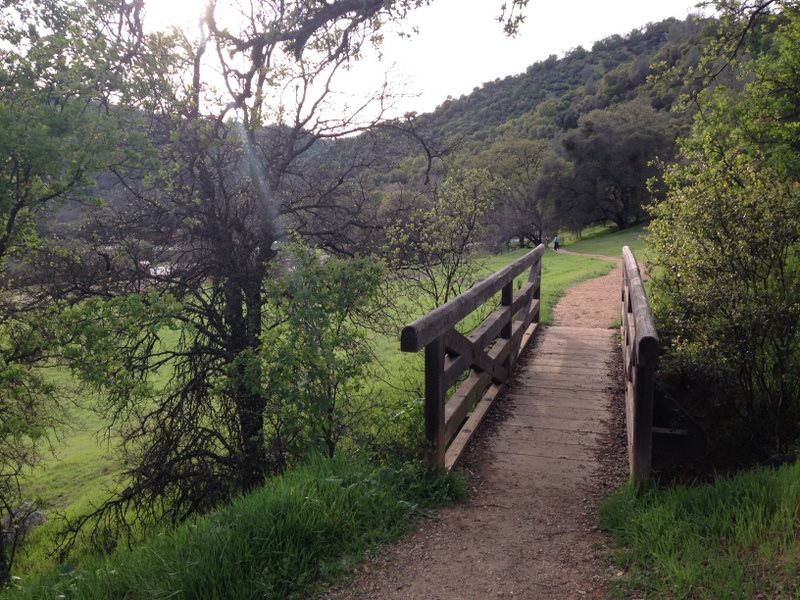

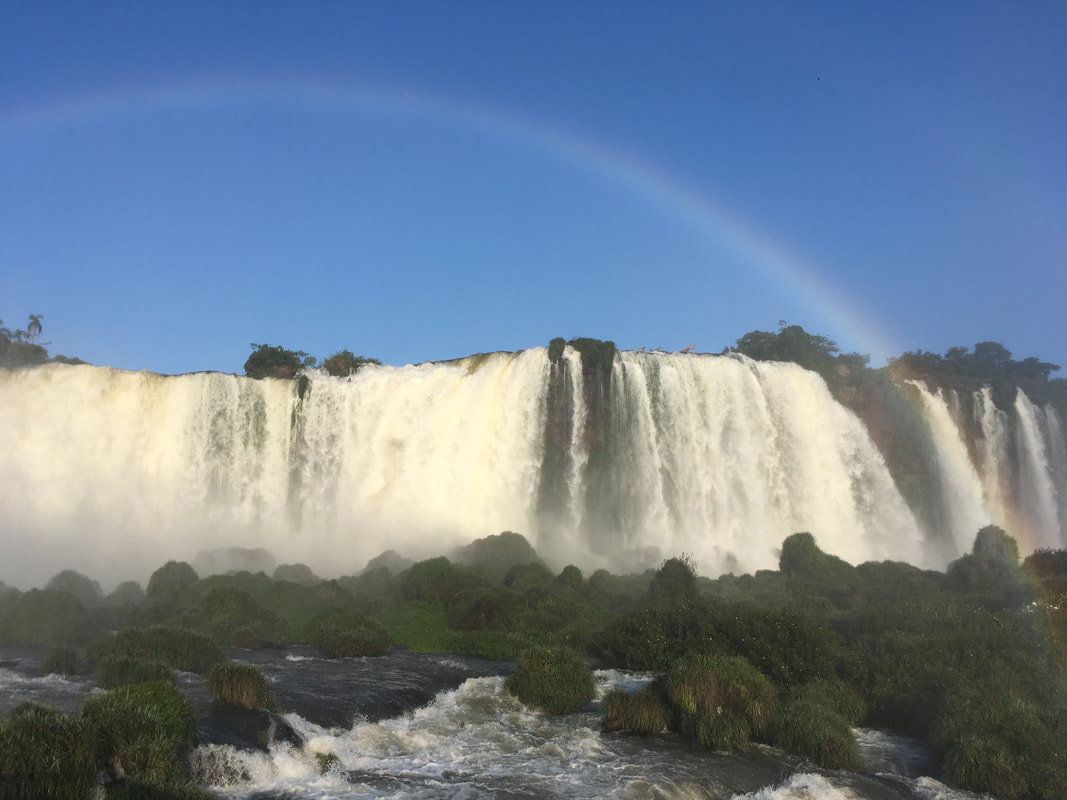
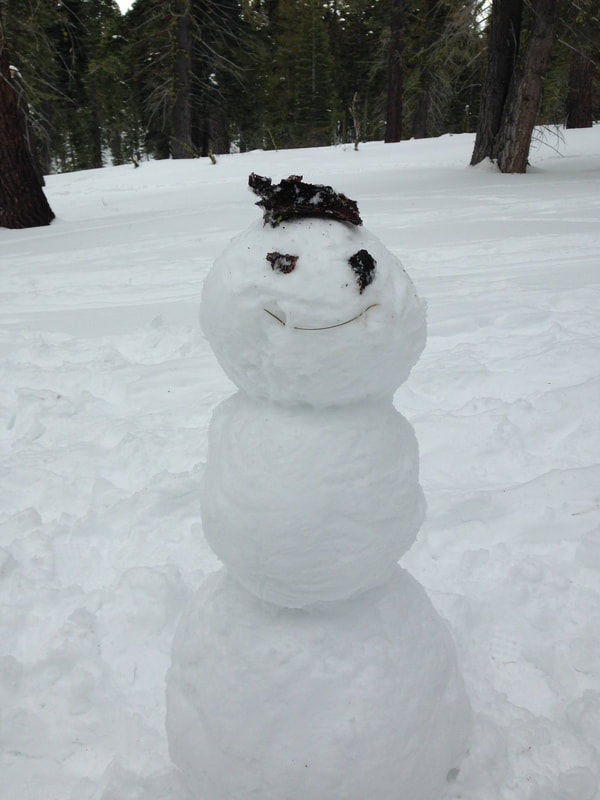
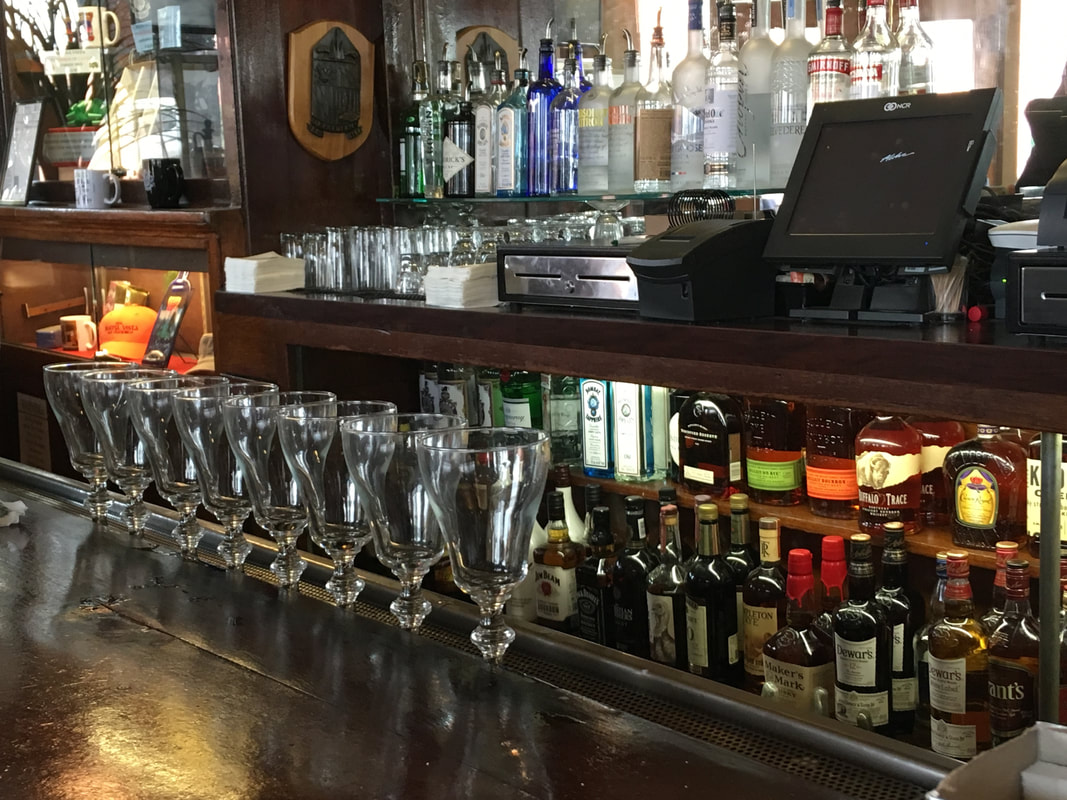
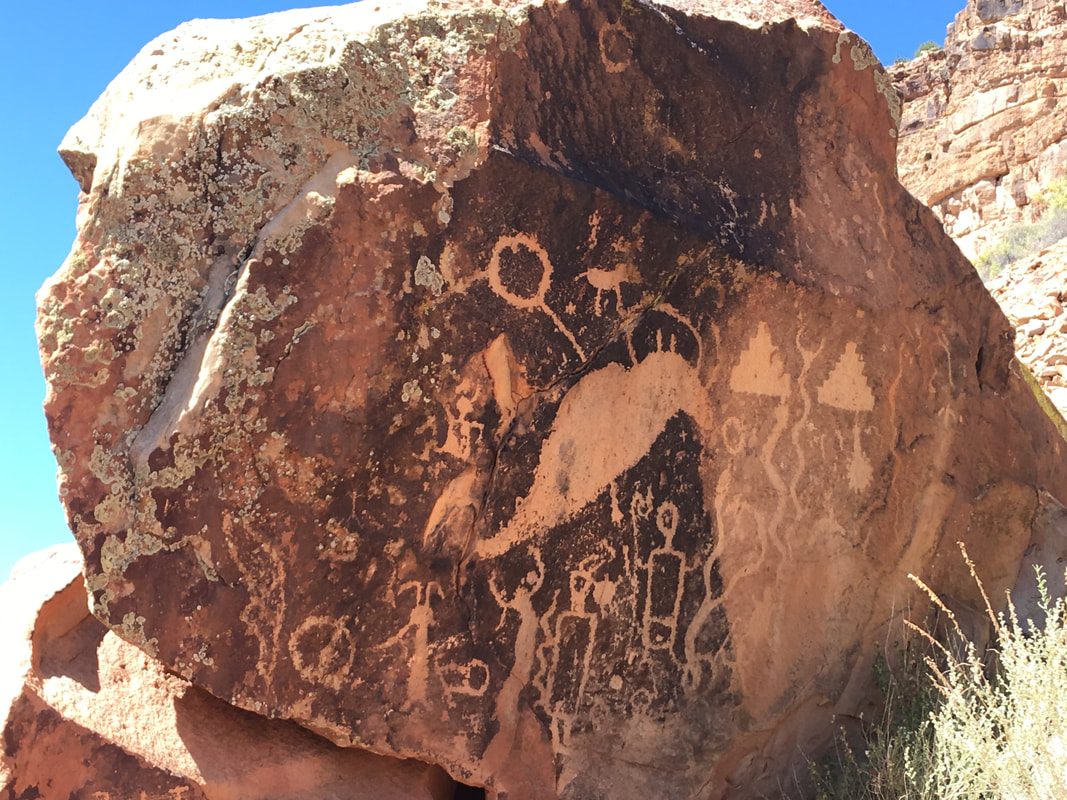
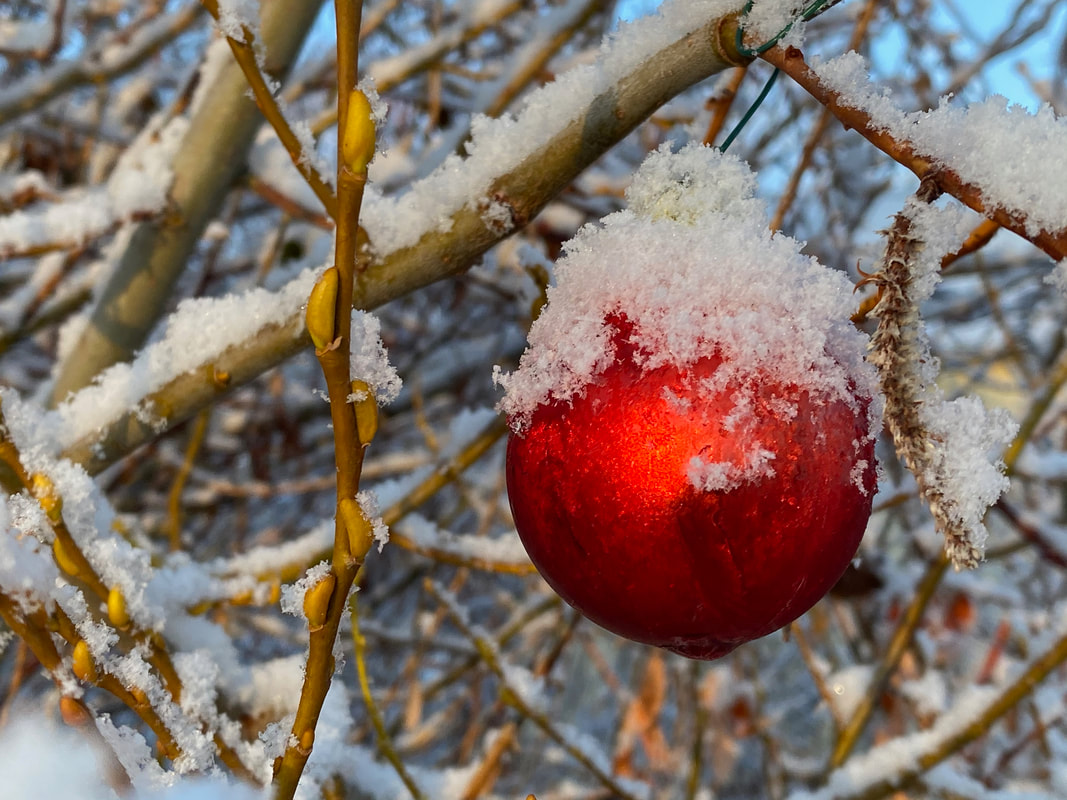
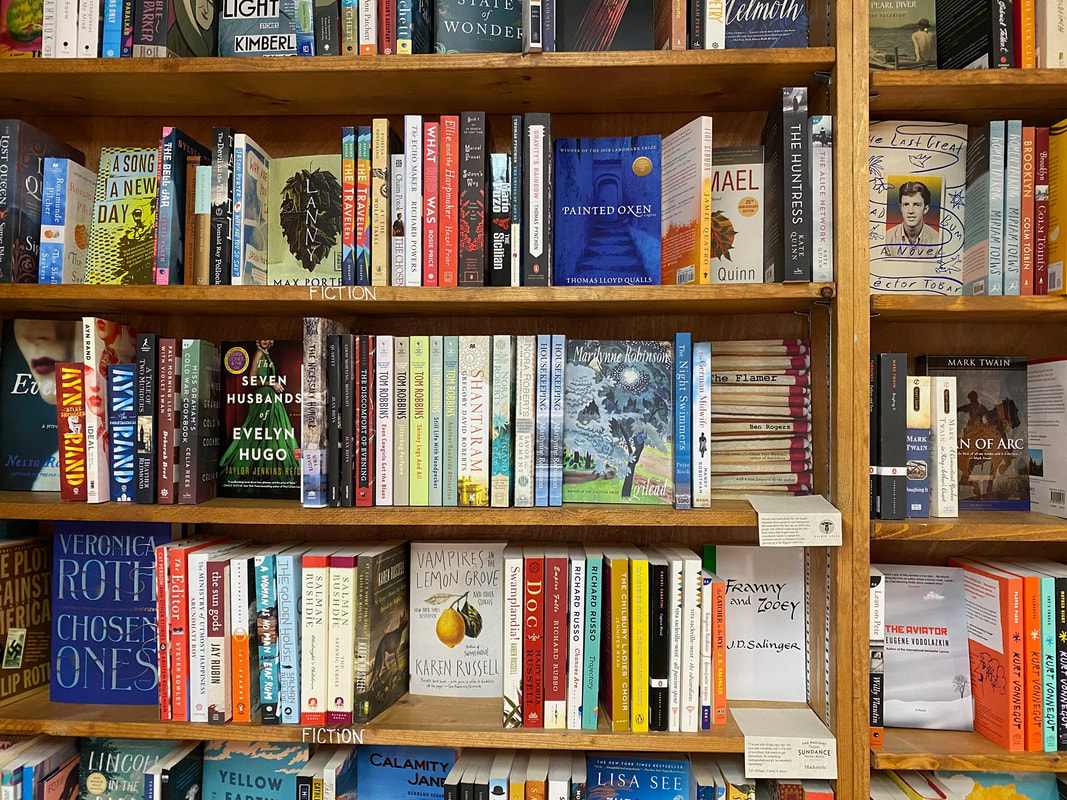
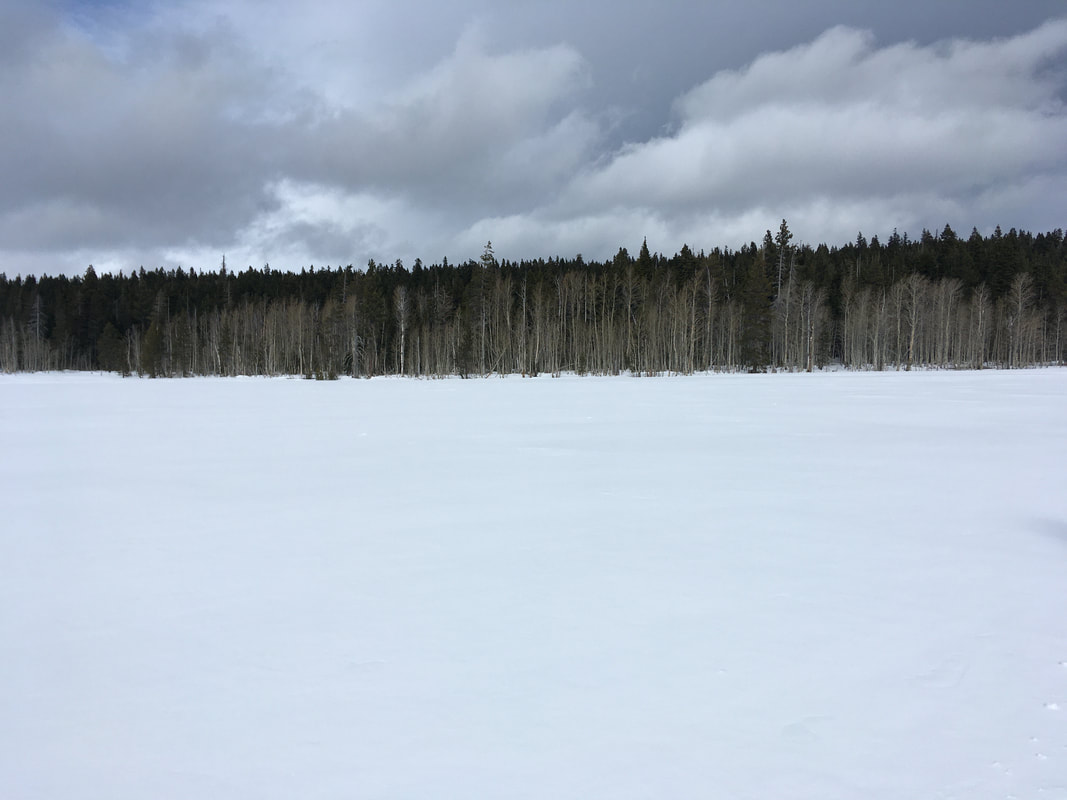
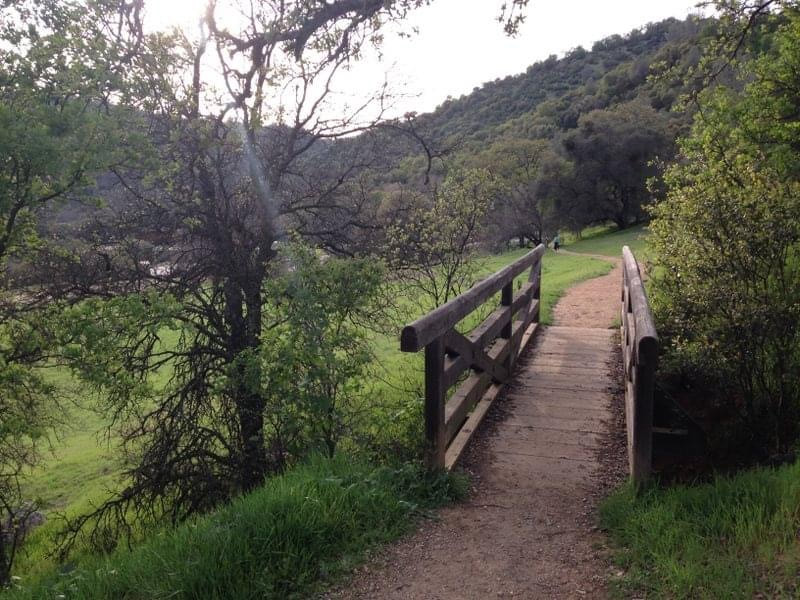
 RSS Feed
RSS Feed